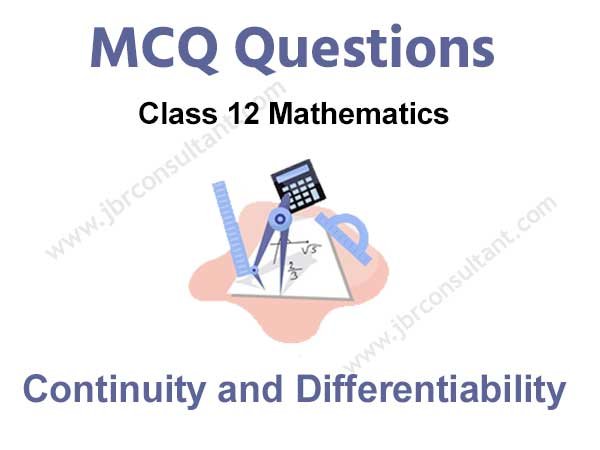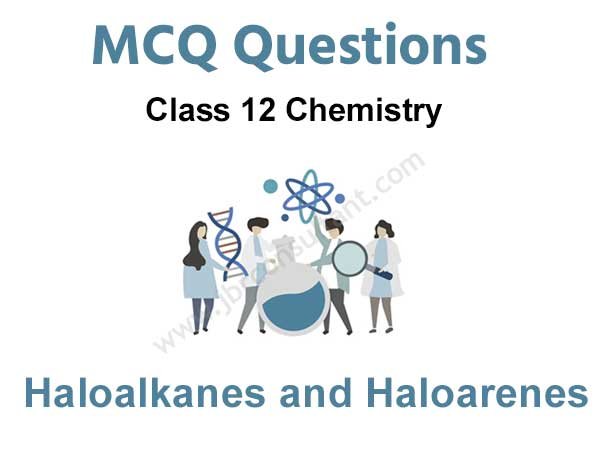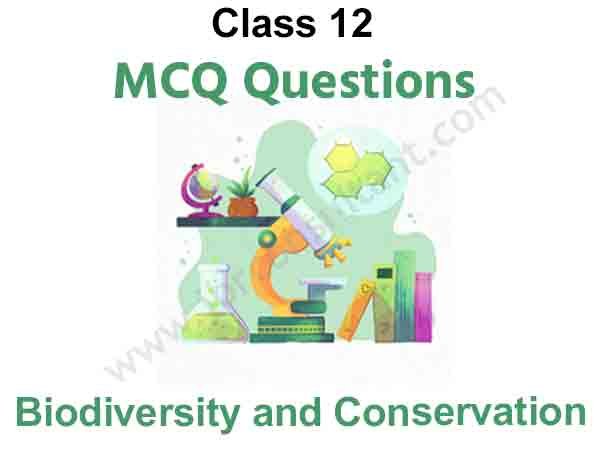Human Settlements Class 12 MCQ is one of the best strategies to prepare for the CBSE Class 12 Board exam. If you want to complete a grasp concept or work on one’s score, there is no method except constant practice. Students can improve their speed and accuracy by doing more MCQ on Human Settlements Class 12, which will help them all through their board test.
Human Settlements Class 12 MCQ Questions with Answer
Class 12 Geography MCQ with answers are given here to chapter 10 Human Settlements. These MCQs are based on the latest CBSE board syllabus and relate to the latest Class 12 Geography syllabus. By Solving these Class 12 MCQs, you will be able to analyze all of the concepts quickly in the chapter and get ready for the Class 12 Annual exam.
Learn Human Settlements Class 12 MCQ with answers pdf free download according to the latest CBSE and NCERT syllabus. Students should prepare for the examination by solving CBSE Class 12 Human Settlements MCQ with answers given below.
Question 1. Which of the following is not a pattern of human settlement?
a. Linear
b. Circular
c. Star-shaped
d. Hamleted
Answer
D
Question 2. Which of the following is not aype of human settlement?
a. Clustered
b. Semi-clustered
c. Hamleted
d. Linear
Answer
D
Question 3. Which were the first million cities in the world?
a. Mumbai
b. Singapore
c. London
d. Tokyo
Answer
C
Question 4. In which of the following regions has the oldest well-documented urban settlement found?
a. Huang He valley
b. Indus valley
c. Nile valley
d. Mesopotamia
Answer
D
Question 5. Name the country with 100% urban population.
a. Singapore
b. Japan
c. Great Britain
d. USA
Answer
A
Question 6. Who coined the word, CONURBATION?
a. Patrick Geddes
b. Amartya sen
c. Jene Gottman
d. Ratzel
Answer
A
Question 7. Which one of the following forms of settlement develops along either side of roads, rivers or canals?
a. Circular
b. Linear
c. Cross-shaped
d. Square
Answer
B
Question 8. Who coined the word, MEGALOPOLIS?
a. Patrick Geddes
b. Jean Guttmann
c. Ratzel
d. Sample
Answer
B
Question 9. Which of the following is a planned city?
a. Canberra
b. Mumbai
c. Calcutta
d. Lucknow
Answer
A
Question 10. In which valley were Harappa and Mohanjodaro towns located?
a. Ganga
b. Narmada
c. Indus
d. Brahmaputra
Answer
C
Question 11. How many of the following cities in India have attained the million status in 2011?
a. 42
b. 48
c. 53
d. 56
Answer
C
Question 12. What is the population of an urban town in India?
a. 2000
b. 4000
c. 5000
d. 6000
Answer
C
Question 13. How many million towns are there in India (as in 2014)?
a. 25
b. 30
c. 55
d. 40
Answer
C
Question 14. Which one of the following forms of settlement develops along either side of roads, rivers, or canals?
a. Circular
b. Linear
c. Cross-shaped
d. Square
Answer
B
Question 15. What is the population of a megacity?
a. 60 lakh
b. 70 lakh
c. 80 lakh
d. 100 lakh
Answer
D
Question 16. Which is an administrative town?
a. Varanasi
b. Surat
c. Gandhinagar
d. Rohtak
Answer
C
Question 17. How much is the population of a megacity?
a. 1 Lakh
b. 5 Lakh
c. 10 Lakh
d. 50 Lakh
Answer
D
Question 18. At the beginning of the year 2016, how many cities in India gained the status of a million city?
a. 400
b. 412
c. 500
d. 512
Answer
D
Question 19. Which of the following city is the largest agglomeration with over 18.4 million people?
a. Bengaluru
b. Chennai
c. Kolkata
d. Greater Mumbai
Answer
D
Question 20. Which of these is not a problem faced by urban settlements in developing countries?
a. Pollution
b. Poor sewerage
c. Housing in surplus
d. Urban Slums
Answer
C
Question 21. Which capital city was planned by Waiter Burley Griffin?
a. London
b. Delhi
c. Buenos Aires
d. Canberra
Answer
D
Question 22. Which one of the following does not influence the pattern of rural settlements?
a. Site and terrain
b. Shape and size
c. Surrounding topography
d. Population
Answer
D
Question 23. In which of the following parts of India dispersed rural settlements is not expected?
a. Kerala
b. Chhattisgarh
c. Meghalaya
d. Himachal Pradesh
Answer
B
Question 24. Which of the following is not a medieval town?
a. Hyderabad
b. Nagpur
c. Jaipur
d. Madurai
Answer
D
Question 25. Which is a medieval town?
a. Pataliputra
b. Delhi
c. Mumbai
d. Chandigarh
Answer
B
Question 26. What is the population of mega cities?
a. more than 1 million
b. more than 2 million
c. more than 4 million
d. more than 5 million
Answer
D
Whoever needs to take the CBSE Class 12 Board Exam should look at this MCQ. To the Students who will show up in CBSE Class 12 Geography Board Exams, It is suggested to practice more and more questions. Aside from the sample paper you more likely had solved. These Human Settlements Class 12 MCQ are ready by the subject specialists themselves.
Question 27. Which one of the following is not covered under the definition of a town as per the Census of India?
a. Presence of municipality, corporation, etc.
b. More than 75% of the population engaged in primary sector.
c. Population density of 400 persons per sq. km.
d. Population size of more than 5,000 persons.
Answer
B
Question 28. How many million towns are there in the world?
a. 300
b. 350
c. 400
d. 438
Answer
D
Question 29. Which of the following is a mining town?
a. Jharia
b. Satna
c. Srinagar
d. Aligarh
Answer
A
Question 30. Which of the following types of rural settlements is found in the fertile alluvial plains and north-eastern states of India?
a. Clustered
b. Semi-clustered
c. Hamleted
d. Dispersed
Answer
A
Question 31. Which of these economic activities is dominant in rural areas?
a. Primary
b. Secondary
c. Tertiary
d. Quaternary
Answer
A
Question 32. Name the country with 100% urban population.
a. Singapor
b. Japan
c. Great Britain
d. USA
Answer
A
Question 33. Name the town that is not located on the banks of a river.
a. Kolkata
b. Agra
c. Bhopal
d. Patna
Answer
C
Question 34. Which of these resources are most essential for creating adequate social infrastructure to cater to the needs of a large population in developing nations?
a. Financial
b. Human
c. Natural
d. Social
Answer
A
Question 35. WhIch of th foIIow1n statements Is Incorrect?
a. Canberra was planned as capital of Australia in 1912.
b. Addis Ababa was established in 1878.
c. London became a million city in 1800.
d. New York became a megacity in 1850
Answer
D
Question 36. Which one of the following settlements is usually located near waterbodies?
a. Rural
b. Planned
c. Urban
d. None of these
Answer
A
Question 37. Which of the following is not a type of village on the basis of function?
a. Farming village
b. Fishermen’s village
c. Circular village
d. Pastoral village
Answer
C
Question 38. Which is the most ancient town In India?
a. Hyderabad
b. Varanasi
c. Agra
d. Chennai
Answer
B
Question 39. Which of the following is a mining town?
a. Jharia
b. Satna
c. Srinagar
d. Aligarh
Answer
A
Question 40. Settlements in low lying river basins, on terraces and levees are called settlements.
a. Dry point settlements
b. Plateau villages
c. Farming villages
d. Wet point settlements
Answer
A
Question 41. In which one of the following environments does one expect the presence of dispersed rural settlements?
a. Alluvial plains of Ganga
b. Arid and semi-arid regions of Rajasthan
c. Lower valleys of Himalays
d. Forests and hills in north-east
Answer
A
Question 42. How much percent is the urban population in India?
a. 18
b. 20
c. 25
d. 31
Answer
D
Question 43. The number of towns in India is:
a. 4161
b. 5161
c. 6161
d. 7161
Answer
B
Question 44. Which of these resources are most essential for creating adequate social infrastructure to cater to the needs of a large population in developing nations?
a. Financial
b. Human
c. Natural
d. Social
Answer
A
Question 45. Which one of the following groups of cities has been arranged in the sequence of their ranks i.e. 1, 2, 3, and 4 in size?
a. Greater Mumbai, Bengaluru, Kolkata, Chennai
b. Delhi, Greater Mumbai, Chennai, Kolkata.
c. Kolkata, Greater Mumbai, Chennai, Kolkata.
d. Greater Mumbai, Kolkata, Delhi, Chennai.
Answer
D
Question 46. Which one of these regions has documented the oldest urban settlement?
a. Indus Valley
b. Huang-Ho valley
c. Nile Valley
d. Mesopotamia
Answer
A
Question 47. Who popularised the Greek word ‘megapolis’?
a. Walter Burley Griffin
b. Jean Gottman
c. Patrick Geddes
d. Lewis Mumford
Answer
B
Question 48. Places such as Jerusalem and Mecca are known as towns.
a. trading
b. commercial
c. cultural
d. administrative
Answer
C
Question 49. What percentage of urban population lives in Class I towns as per 2011 Census?
a. 10%
b. 20%
c. 40%
d. 60%
Answer
D
Question 50. Which is a medieval town?
a. Pataliputra
b. Delhi
c. Mumbai
d. Chandigarh
Answer
B
Question 51. Identify the settlement type that develops on either side of a road, a river, a railway line or a canal.
a. Cross shaped
b. Circular
c. Linear
d. Square
Answer
C
Question 52. In which of the following years was Addis Ababa established?
a. 1800
b. 1878
c. 1880
d. 1778
Answer
B

You can easily get good marks If you study with the help of Class 12 Human Settlements MCQ. We trust that information provided is useful for you. NCERT MCQ Questions for Class 12 Geography PDF Free Download would without a doubt create positive results.
We hope the information shared above in regards to MCQ on Human Settlements Class 12 with Answers has been helpful to you. if you have any questions regarding CBSE Class 12 Geography MCQ Pdf, write a comment below and we will get back to you as soon as possible.
Frequently Asked Question (FAQs)
How many MCQ questions are there in Class 12 Geography Chapter 10?
In Class 12 Chapter 10 Geography, we have provided 52 Important MCQ Questions, But in the future, we will add more MCQs so that you can get good marks in the Class 12 exam.
Can we score good marks in Class 12 Geography with the help of Human Settlements MCQ Questions?
Yes, MCQ Question is one of the best strategies to make your preparation better for the CBSE Board Exam. It also helps to know the student’s basic understanding of each chapter. So, You can score good marks in the Class 12 Geography exam.


